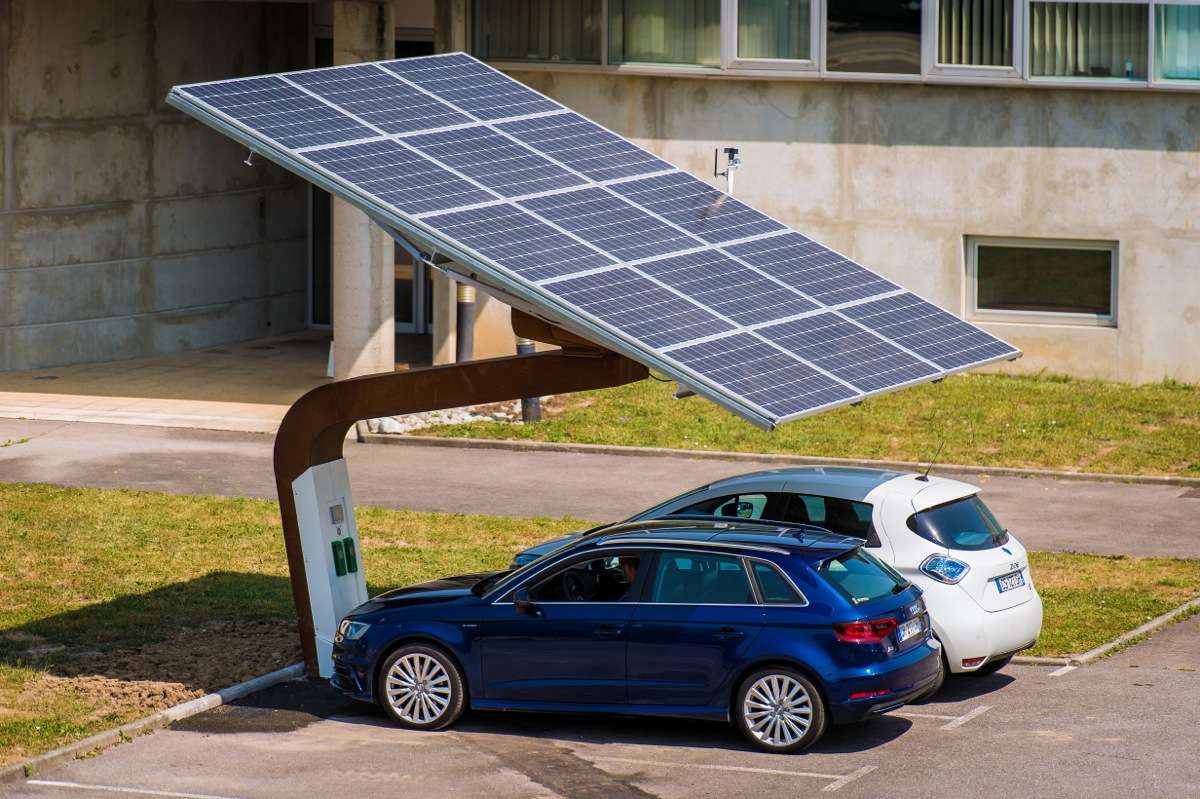The EV solar modules market incorporates solar photovoltaic modules that are mounted on electric vehicles’ roofs, bonnets, and other body surfaces to charge the vehicles’ batteries while they are parked. EV solar modules use solar energy to directly charge the battery of electric vehicles without any integration with the electric grid. This reduces the vehicle owners’ dependency on charging stations and minimizes the load on electricity grids. EV solar modules provide a highly sustainable and eco-friendly solution to partial electric vehicle charging.
The global EV solar modules market is estimated to be valued at US$ 1,829.8 Mn in 2024 and is expected to exhibit a CAGR of 19% over the forecast period 2024 to 2031.
Key Takeaways
Key players – Key players operating in the EV Solar Modules Market are Volkswagen, Jinko Solar, Trina Solar, Canadian Solar, JA Solar, Hanwha Q CELLS, LONGi Solar, REC Group, LG Electronics, SunPower, Capsolar, Innolia, and Maxeon Solar Technologies.
Key opportunities – Growing preferences for renewable energy sources, government initiatives and subsidies for solar-powered electric vehicles, and partnerships between automakers and solar companies present key growth opportunities in the market.
Global expansion – Automakers are strategically focusing on geographical expansion plans and new product launches to cater to the growing demand from emerging markets such as Asia Pacific, Latin America, and Middle East & Africa.
Market drivers
The rising demand for eco-friendly vehicles is a major market driver. EV solar modules help reduce overall vehicle emissions by utilizing solar energy for partial charging while parked. Solar integration enables zero-emissions transportation and supports decarbonization & sustainability goals. EV drivers can minimize their fuel costs by using the sun as a renewable energy source to power their electric vehicles. This factor is expected to further propel the demand.
PEST Analysis
Political: The changing political priorities and government regulations have influence over EV Solar Modules market. Various regions have mandated targets for renewable energy adoption and emission reduction which promotes adoption of solar powered vehicles.
Economic: Rise in fuel costs and technological advancements making solar panel more efficient and affordable has increased adoption of EVs with solar integration. Customers opt for such vehicles to minimize running costs of vehicles over longer term.
Social: Growing environmental concerns and awareness about use of clean energy is driving more consumers to purchase electric vehicles with solar roof for their daily use. Social acceptance of solar powered EVs is increasing.
Technological: Continuous improvements in solar cell efficiency and battery technology has enabled development of better performing and affordable solar modules that can charge EVs on the go. Integration of solar with electric powertrain further enhances vehicle range.
Geographical Regions with High Market Concentration
Asia Pacific region leads the EV solar modules market in terms of value, attributed to strong government support for emission-free vehicles and use of renewable energy in countries like China, Japan and South Korea. Large customer base for EVs along with presence of top solar panel manufacturers has propelled regional market growth.
Fastest Growing Regional Market
Europe is witnessing fastest growth for EV solar modules market stimulated by stringent emission norms and rising demand for electric cars integrated with renewable energy sources. Presence of leading automakers focusing on developing solar powered EVs and government incentives are assisting higher adoption in the region.
Note:
1. Source: Coherent Market Insights, Public sources, Desk research.
2. We have leveraged AI tools to mine information and compile it.


